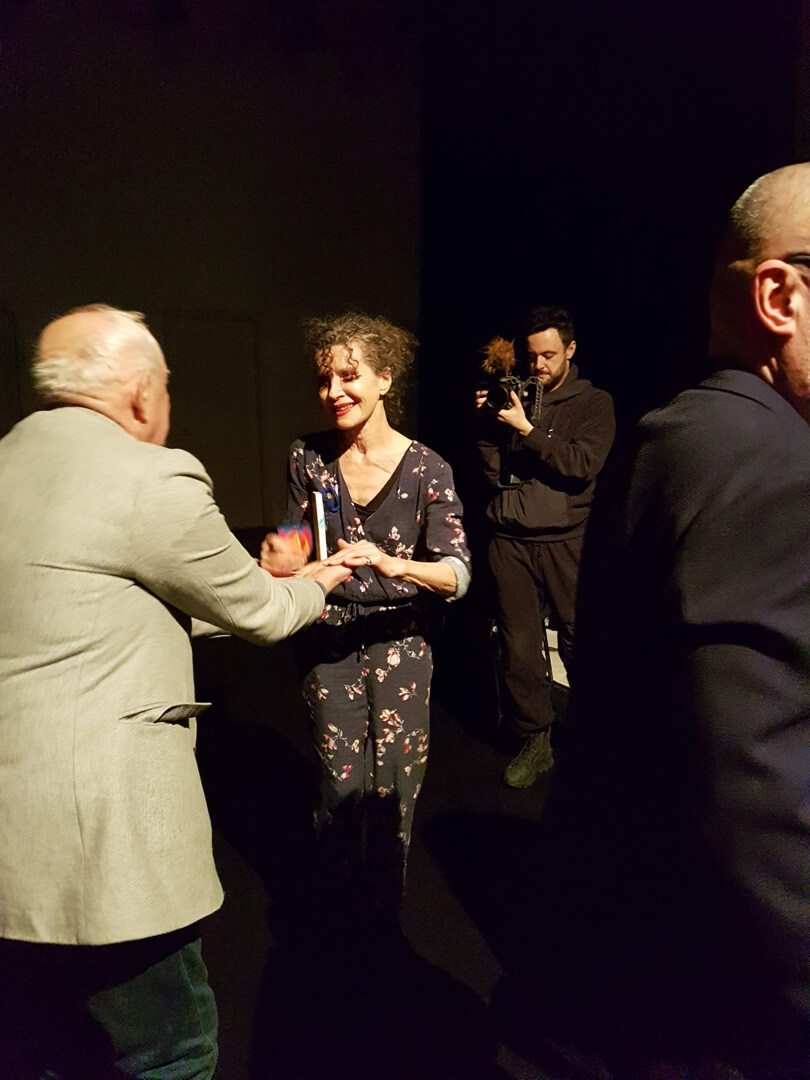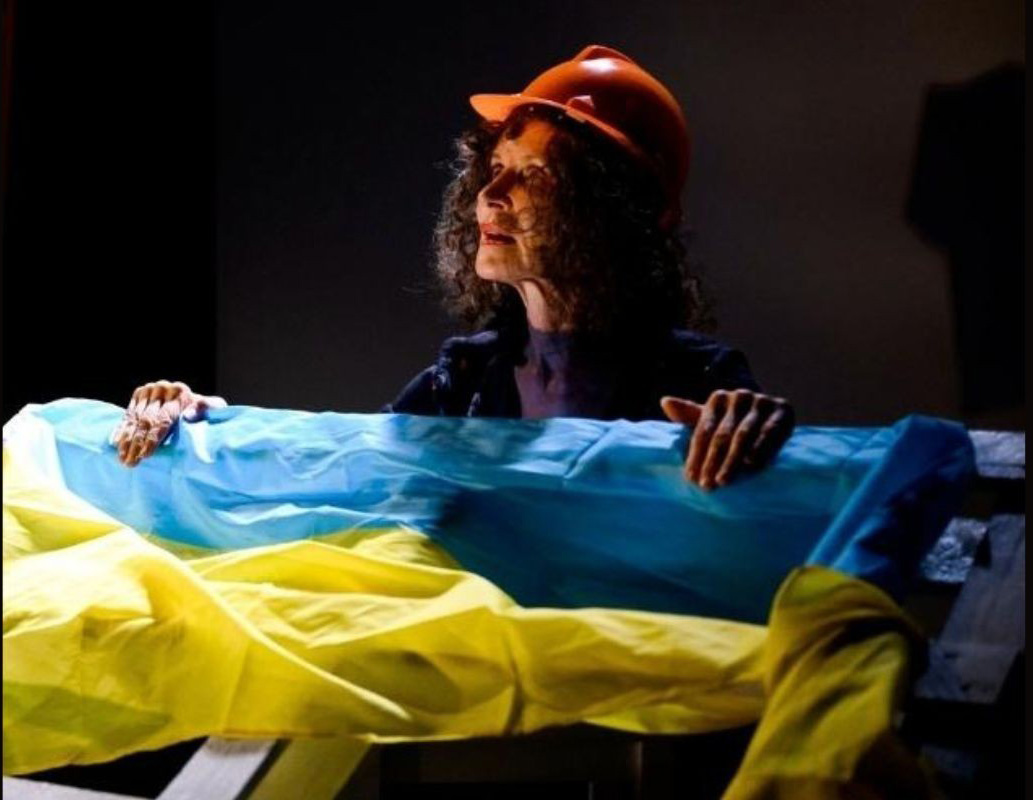
The Shows, the People, the Destruction
Alex, the artistic director of the ProEnglish Theatre, met us off the train. He dismissed an elderly taxi driver – fur hat on his head and swathed in an enormous coat – saying that he’d charge us a fortune.
The following day we found ourselves flung unceremoniously out of a taxi, by a furious driver who’d started shouting when we asked him to take us back to Kyiv. We never found out why he was so angry – he was beside himself, taking corners on two wheels – screaming what we assumed to be abuse. And when we finally left Kyiv many days later, our driver – another one – was yelling out of the window into the darkness (it was 11pm). One woman’s face swam out of the shadows as she approached the car. She was yelling back, but what were they both saying? And what is it with taxi drivers here? Why do they all yell? We encountered, everywhere, so much courage and resolve…perhaps the yelling taxi drivers were expressing the collective unvoiced rage of the nation… Andrew, ever cautious, had booked two hotels. We had to cancel the reservation in person, since no one ever answered the phone. We’d gone into a smart shop in central Kyiv on the first day and asked for directions. One young man, with massive ear studs, very generously came out into the cold to show us. I wondered what Putin would make of him…he’d probably think he’s been infected with Western effeteness…
“In the midst of chaos and courage, the yelling taxi drivers echoed the unvoiced rage of the nation. In towns like Borodyanka, the horrors of Russia’s actions are etched into ruins, a stark reminder of Putin’s twisted ambitions.”
Both shows went wonderfully well. The audiences were so generous. Both Neda, the writer and I were in tears. There were flowers from Neda and the theatre, chocolates from the gloriously ebullient Alex, wine from Neda. Then came the anxiety about the 11 o’clock curfew and getting home, for those who lived across the river on the left bank… A couple of days later we went to Bucha and Borodyanka, both now notorious. Borodyanka is a small, sad town, occupied by the Russians for forty days. They’d bombed several buildings, including a couple of apartment blocks. The residents had taken shelter in the cellar. It became their coffin, their bodies lying there until the Ukrainian army retook the town. The film crew I’d found – Simon, Kristina and the rest – drove us there. Simon knew the town and wanted us to document what had happened there. The horror of what Russia is doing is there, in those buildings. We climbed up as far as we could go and stared into the ruins of what had been family homes. Mountains of smashed crockery, a few intact photographs, children’s playthings… Later that day, we visited Bucha. Outside the town is what is now called the Car Cemetery. Cars are piled up, one on top of another – rusting shells, silent witnesses to their owners frantic attempts at escape. The cars remind you of those human beings, all scrambling to get away, but machine-gunned and shelled by tanks. One car still bore the traces of a woman’s hair and brains, after her head had been blown off. These places are immeasurably sad. They bear terrible witness to Putin’s grotesque dreams of conquest.

